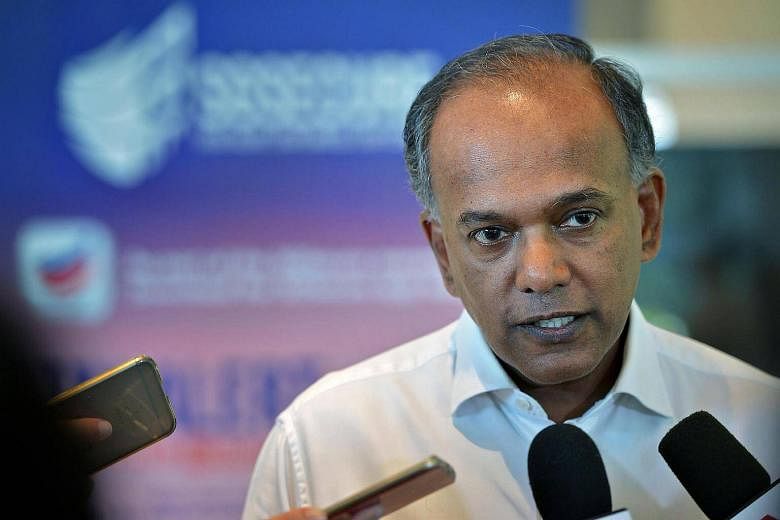Governments and businesses in the region must work closer together to detect and counter threats in cyberspace, Home Affairs and Law Minister K. Shanmugam has said.
This has become more crucial as critical infrastructure such as banks and everyday devices such as smartphones are connected to the Internet, making them more vulnerable to attacks by cyber criminals and hackers, observers say.
Mr Shanmugam, speaking at the launch of the Microsoft Transparency Centre and Cybercrime Centre for the Asia-Pacific yesterday, said cybercrime has overtaken traditional crime in the United Kingdom and "likewise in Singapore, we are bringing down crime in all other areas, but cybercrime is shooting up".
The growing sophistication and number of cyber attacks require greater cooperation to fight such crimes, he added, saying: "While government has expertise, it does not have all the expertise, and partnerships with the private sector have become essential. We have to work with international organisations like Interpol and industry leaders like Microsoft."
His comments come as ministers from neighbouring countries gather here next week for the first Asean ministerial conference on cyber security. It is one of several events taking place during the inaugural Singapore International Cyber Week.
The launch of Microsoft's new centre here yesterday, its first in the Asia-Pacific, will help governments and companies to work more closely together to fight threats from cyberspace, it said.
Under the initiative, the tech giant's programmers will share technical information with governments which have joined their programme. They will also allow the law enforcement agencies of these countries access to intelligence, including real- time, geographic data of malicious software activity within their country.
This is possible because Microsoft collects a tremendous amount of data through its software, with users' permission: The company runs the world's largest anti-malware and anti-virus service and scans one billion devices and hundreds of millions of e-mail messages every month for malware.
"The extensive technology footprint that Microsoft has around the world has allowed us to understand and counter cyber threats," said Ms Jessica Tan, managing director of Microsoft Singapore. "Beyond leveraging on that knowledge to build trusted applications and products, we also have the responsibility to share the same intelligence with governments and organisations so that we can contribute towards a safer and more trusted cyber world for Singapore, the region and beyond."
The centre also houses Microsoft's own cyber security experts, including its Digital Crime Unit (DCU), which consists of lawyers, data scientists, investigators and software engineers. The team has built specialised programmes to investigate cybercrime and has helped dismantle major botnet chains - large networks of infected computers used to commit cyber attacks - over the last eight years.
DCU regional director for Microsoft Asia Keshav Dhakad said such successes are possible only in collaboration with other private companies as well as law enforcement agencies.
"We couldn't have done this alone - we had to work with (Internet security companies) Kaspersky and Symantec and agencies like Europol," he said. "The law enforcement brought us the muscle in going and driving actual enforcement, and the raids and seizures."


